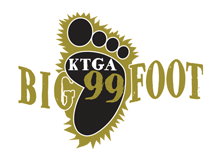January 16, 2023 |
In legislative business on Friday, the House Corporations Committee voted unanimously to approve a bill on how independently owned wind farms are appraised for property taxes. The committee vote was 9-0 after an hour of testimony.
At the heart of the tax policy debate is whether the state or local counts governments should assess the wind energy plants that are privately owned. By state statute, the Wyoming Department of Revenue assesses public utilities. These primarily involve electricity, natural gas and telephone. For over a decade beginning in 2008, the DOR conducted the assessments for privately-owned wind farms, too. In 2021, a new Department of Revenue, Brenda Hansen, determined that Wyoming law did not give her agency the authority conduct those valuations.
Audio PlayerPhoto: Jim O’Reilly/Bigfoot 99.
Last year, after the legislature failed to amend the law, the taxing authority was turned over to the nine counties in Wyoming that are home to privately-owned wind energy installations.
Not everyone was happy, including wind energy producers and their lobbyists, who testified that they want the state to conduct the valuations. The companies said they want a stable and predictable tax climate and only the state can provide it. House Bill 3 is the result of their unhappiness. The corporation committee sponsored the legislation. The chairman of the House committee, Jared Olsen of Laramie County, opened Friday’s meeting saying HB 3 puts the taxing authority for wind farms with the state.
Audio Player
How the department reached its assessed valued has been off-limits to county assessors in the past, creating suspicion that properties were being undervalued. Some wondered if the state was even doing its job of inspecting the sites.
Converse County Assessor Dixie Huxtable is among the critics of how the state has conducted the valuations. Huxtable said she did not support HB 3 and said the valuations should remain at the local level where they belong.
Audio Player
Most, but not all the nine affected counties affected by HB 3, believe the taxing authority should happen at the local level because they have the most at stake and are more familiar with the operations that are occurring within their county lines. When the state abdicated taxing authority over independent producers last year, the nine counties—including Carbon, unanimously agreed to hire the same Texas-based company, TY Pickett, to conduct the valuations on their behalf. TY Pickett is expected to be issuing a report on its valuations within the next two or three weeks. The counties have a March 1 deadline to submit their valuations for 2022 to the state.
HB 3 carries an effective date that would likely fall after this year’s tax reporting is due. Early in Friday’s meeting, Chairman Olsen said the bill could be back dated to January of this year. This would leave the counties on the hook for the valuations they have contracted for—and the state with an embarrassing smoking gun at its feet if the DOR’s state valuation comes in far less than what the counties report.
Converse County Commissioner Jim Willox questioned whether the bill could be backdated legally.
Audio Player
The Converse County Commissioner chair said the biggest problem with the bill said his biggest objection to the bill is that it does not allow local governments to appeal an assessed valuation if it was deemed to be off the mark.
Huxtable defended using TY Picken, saying the company is already under contract to provide valuation on 70 other complex facilities in Converse County, which also is home to oil, gas and coal production. Carbon County Commissioners report that the Texas company is under contract here to provide valuations of the refinery operation, Brush Creek guest ranch, as well as other properties. Huxtable was asked if hiring a third party contractor will produce enough additional tax to pay for itself.
Audio Player
When the motion came to vote for the bill, Rep. Mike Yin of Teton County offered an amendment to change the effective date to January 1, 2024.
Audio Player
Yin’s amendment passed unanimously as did the bill itself. House Bill 3 now advances to the Floor for a debate in the committee of the whole.













